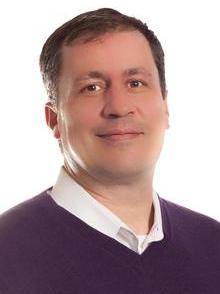
Make no mistake about it, the world of trading today revolves around applied science and programming more than it does experience in the trading pits, recruiters say.
“Typically when you look at them they say they are a trading firm, or asset management, or a hedge fund, but when you scratch the surface they really are technology firms,” Thomas Burrell, a recruiter for HFT clients at Chicago-based recruiting firm Objective Paradigm, told Markets Media.
Burrell, who has almost a decade of recruitment experience, said that the skills in greatest demand are programmers with a sense of how financial markets operate.
“If you are a gifted programmer, somebody will always be willing to talk with you,” he said. “Programming without a doubt is the number one priority; it always has been and probably always will be. Whenever there is a new technology or a new process then you’ll see those skill sets pop up.”
Often, a firm will discreetly ask headhunters to conduct a search for someone who has expertise in a specific technology. Then, within six to twelve months, the floodgates will open, and every firm will want to find that same skill.
Today, anyone who has skills on networking or hardware layer, especially in virtualization or automation, is in hot demand. The same holds true for machine learning.
As with any field, separating potential superstars from the merely well-qualified takes a great deal of time and effort, both for the employer and for job candidates. “The difference between a great programmer and a good programmer is even further than the distance between a good programmer and an average programmer,” Burrell said. “The great ones are just very hard to find.”

Thomas Burrell, Objective Paradigm
As for the candidates, the recruitment process often comes down to demonstrating proficiency in problem solving. “I like to explain to people that these are very much like Olympic tryouts,” Burrell said. “If you can solve a similar problem with less code, it’s more efficient, a stronger cleaner solution, I have nine or ten clients that would probably be interested in that person.”
A solid background in machine learning combined with a strong data analytics background are in hot demand at present. “Today it is not just about speed,” Push Patel, partner at New York-based Options Group, told Markets Media. “It is more about bringing in highly qualified people to help build new and better strategies, as most of these firms already have their technology frameworks in place and have diversified into lower frequency businesses.”
Patel has staffed entire departments from scratch when firms convert from manual trading to electronic as well as aspiring start ups in the quant/electronic trading space. “There are a few start-ups which are run by manual traders that have committed the technology, including infrastructure, to automate their strategies.,” he said. “In these cases, we’ve had to create an entire team of professionals to make that transition.”
At Options Group, Patel has been active in building out the firm’s electronic trading and quantitative research practice.
It is rare that [proprietary trading] firms will hire people that are purely just traders without quantitative background. “This usually happens at small firms when they are trying to balance their understanding of market micro-structure by bringing in traders that have a solid background in finance and risk management and have experience through longer economic cycles, and partnering those individuals with IT and analytical folks from outside of the industry,” said Patel.
Featured image via okalinichenk/Dollar Photo Club




